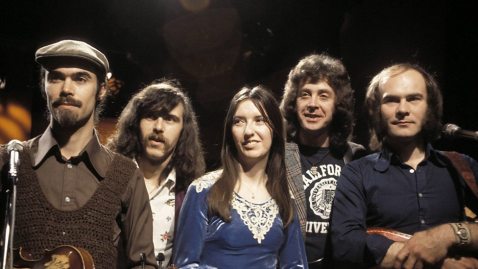
I recently received a correspondence which read:
I need your help. Can you link me to anything that proves that I am not old the music just got VERY bad after the 80’s. A co-worker is smarming me saying I have just become my parents. NOT TRUE my Dad stopped listening to music after he turned 18 and unfortunately sees this as just what you do. My mom likes all kinds as I do and is open to everything. Long story short, we have radio that only picks up 2 am stations and a lame FM one. She bought a device and we can stream but she only plays i heart radio 96 something or other. After 8 hours I wanted to scream. She “said” we would all get to choose but this is all I’ve heard. When I voiced my discontent (nicely) she slammed me with the age thing. Any help appreciated.
I’m doubtful this post can provide much help to my friend. But the topic interests me a great deal.

The issue of so-called “taste lock” vs. staying connected with current popular music is a many-faceted one. As perusal of this blog will reveal, I have tendencies in both directions.
I consider myself a music fanatic in the truest sense. There is music in my head almost literally all of the time. I enjoy music even when I’m not hearing it. Even while asleep my brain often replays familiar songs or invents original melodies. I couldn’t stop it if I tried.
Much of my metabolism as a fan of music is geared to the discovery of new stuff. But the “new” music can be old music, as long as it’s new to me. This hunger to be stimulated by new sounds puts me on the “staying current” side of the fence on this issue.
But my heart will always be stuck in the 70’s.

I think it’s natural for any music lover to maintain a profound emotional attachment to the music that provided the soundtrack to their own coming of age. For my part, the three bands I consider my all-time favorites all entered my world between the ages of ten and fourteen. I doubt any band could make as powerful an impact on crusty old middle-aged me as the Moody Blues’ Every Good Boy Deserves Favour album did on that impressionable, prone-to-daydreaming kid with the record player beside his bed.
But arguments can be made on either side of the issue of whether to stick to the old favorites or continually seek out good new music.
IN DEFENSE OF TASTE LOCK
In defense of those who have succumbed contentedly to taste-lock, I must say that in certain genres of music at least, the peak years seem to be decades behind us. Chris Squire’s recent passing reminded me that progressive rock’s flowering of genius in the early 70’s still echoes in the stuff you hear today–perhaps rock music’s evolution reached a creative summit with music created by bands like Pink Floyd, Genesis and Yes over the span of a few brief years. To my ears at least, creativity, complexity and melodic appeal never more perfectly shared the grooves of a record than on some of Yes’ early masterworks, the indelible riffs of which are demonstrated by Steve Howe here.
 Like contemporary jazz and dance music, even when new rock is good it sounds derivative.
Like contemporary jazz and dance music, even when new rock is good it sounds derivative.
There’s a reason bands like the Rolling Stones, the Eagles, and Fleetwood Mac not only continue as viable touring entities, but can basically name their price for concert tickets: no one has come along to supplant them, if not artistically then at least in terms of mass appeal. Certain artists, such as Neil Young and Bob Marley, and certain bands, such as Steely Dan and Led Zeppelin, have no real successors or contemporary peers.

If you’re a big fan of such artists I sympathize with your contention that “new music sucks”. Nothing new sounds like what you love best.
Arguably, no female songwriter born after 1970 has written anything as deeply affecting as Stevie Nicks’ “Landslide”. Perhaps no rock band in the last 30 years has recorded a song of such bombastic splendor as Zep’s “Black Dog”. And not one of the retro-soul acts currently tearing up the charts has recorded a song half as good as the Righteous Brothers’ “Soul and Inspiration”. I get it.
BUT THEN AGAIN…
But there is a ton of great undiscovered music out there, both new and old. Whatever your taste, if you’re a true lover of music I defy you to do a little digging through this blog’s song recommendation section without finding something that piques your interest. Some of it’s current, some not, but if it’s new to you and you like it then the takeaway is that you’re not done discovering good music. And it follows that though you may be attached to a particular era of music–and this is to be expected–no era or decade has the corner on great music.
And anyway, your perception of the music of the past as superior is colored by this inevitable fact:

It’s true. Most of the dreck of past decades has sunk to the bottom of the barrel and radio formats don’t bother to stir it up. Don’t forget much of today’s dreck will be tomorrow’s dregs. And the classics that survive this era will make current music seem better on the whole than it actually is.

















